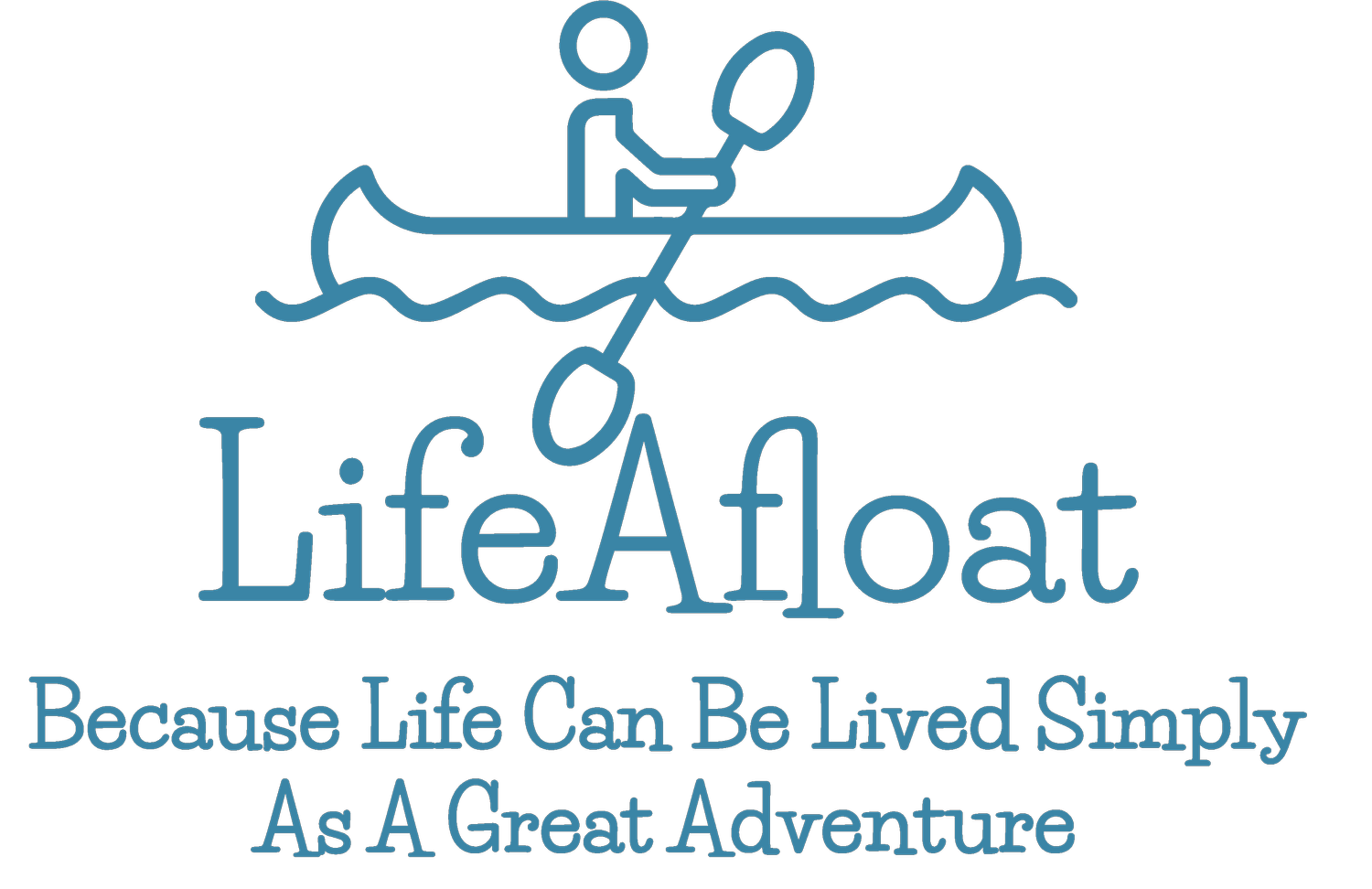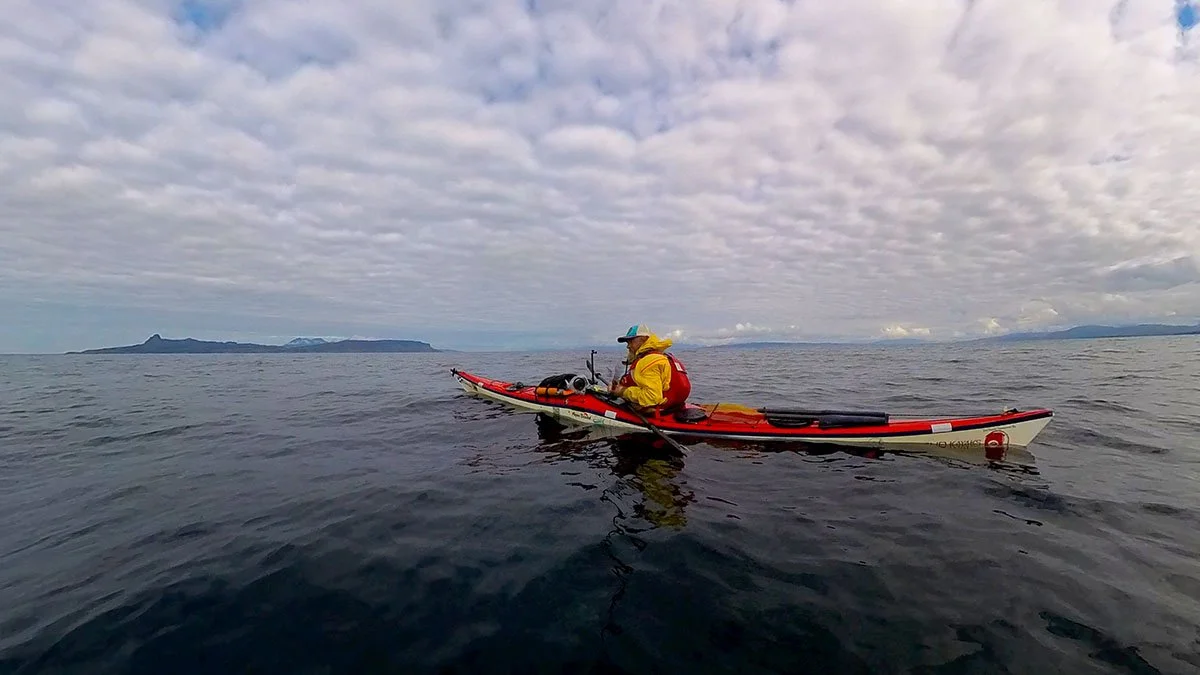A Word Of Caution - For Myself
/All this week, I have been Tweeting and posting on Facebook short videos where I describe how immersing myself in Nature is good for my recovery from severe depression. There is no doubt being active in the outdoors, surrounding myself with the grandeur and beauty the Isle of Mull has to offer, is beneficial for me. I am most comfortable with myself when I am out in the wilds. I am a confident and accomplished outdoors person being fortunate to have accrued an incredible amount of wisdom and knowledge through my many years working and adventuring in the wilds. Because of this, my interactions with wild spaces and Nature tend to err on the more adventurous and possibly physically demanding. It’s through a combination of subliminal connection to nature and facing challenge that I gain the most from these experiences for myself. However, as beneficial as this usually is, it’s not always the most healthy or safe approach for me to pursue.
There are time when Nature may not be the panacea for my depression and I need to take care. This has nothing to do with facing the actual risks associated with adventurous outdoor activity, though of course these are a factor to be considered. It is more about me keeping myself safe from myself.
The extreme safety consideration for me is my level of ideation for completing my suicide. I wrote about this a long while ago and you can read about this - here. It makes complete sense that I do not embark on a solo sea kayaking trip if I’m at the depths of a depressive episode when I have strong desires for my suicide. This is a safety consideration akin to asking some one to abseil without a rope. I wouldn’t do it. Despite my strong desire for death during these difficult times in my depression, there is enough of a sense of preservation within me to know that kayaking on my own would possibly be a bad idea. The safety factor which I attend to most when making these decisions, is asking myself - “How impulsive do I think I am at the moment?” If I’m confident I’m in control of my impulsivity, then I might consider it safe for me to maybe kayak on my own around Tobermory Bay, having given Karen clear details about my plans and the time I expect to be ashore again. The benefits of such a sojourn in my kayak would undoubtedly outweigh the risks in that particular kind of scenario. If though I am thinking of a longer journey with a night or two away, then even though I might feel in control of my impulsivity, I would decide against embarking on such a journey because I would not know how I would cope with any stressors on the way, or how I would cope with my solitude.
To be honest, when I’m at the depths of my depression, I usually lack the motivation to embark on a lengthy kayak trip even if the weather and sea conditions were perfect.
It’s in my make up to expect a lot of myself, to be strong, to persevere and not give in. When I am well, this trait of mine can be an attribute, enabling me to undertake some demanding adventurous challenges - and enjoy doing so. However, when I’m not well, then having this desire to push myself hard can be counter-productive. It’s probably this fact alone which I have increasingly learned to pay attention to when making a ‘risk assessment’ about my engagement with the outdoor realm. The question I find I have to ask myself is - “What do I want to achieve?” The answer to this will be internally debated, weighing up the merits of the endeavour, opposed to the risks of possibly failing to complete the task and what these may mean for my mental health. An example of this occurred a year or so ago. I was not long out of a prolonged hospital admission and in a customary show of bravado, I stated I would kayak solo around the Isle of Mull. I plastered my intent over my social media outlets and blithely set off down the Sound of Mull, overweight from unconstrained hospital eating and dreadfully unfit. Needless to say, I managed just two days of the trip before I phone Karen and asked her to collect me and take me home.
A positive reflection of this experience is the fact I knew I needed to stop my expedition and acted on this. I took care of myself. In fact this one experience forms the bedrock of my decision making processes since then. While I may not have been at risk of completing my suicide because where I was in my recovery at that point, there was considerable to stunting or even reversing this recovery through the consequences of ‘failing’. I push myself hard with an expectation of succeeding and when this does not occur, I can be painfully self-critical. Self-criticism is one of the driving forces for my depression, so avoiding situations where there is a risk where this may occur makes good sense. In hindsight of course, I ought not have set out on an ambitious circumnavigation of Mull given I was just out of hospital. As I write this I notice I’m internally berating myself for even thinking that kayaking around Mull at that point my life would be a good idea. The result of this internal criticism is a huge sigh and exhalation and a profanity laden exhortation. Thankfully though, at the moment I’m strong enough not to allow this one negative thought, lead me into a self-destructive cycle of rumination and instead, I have moved on to think about the positive outcomes of what I am sharing here.
The point I think I’m labouring here is, there may be times when immersing myself in Nature may not be a beneficial option for me, if my expectations of my ability outweigh the realities of the same. The negative consequences of incompletion and a sense of failure would be detrimental to my fragile mental health. This may be true even for considering to paddle around our local Calve Island or not. This is a trip of just a couple of hours and of no great challenge at all. However, there are times in my depressed state when my energy levels are so low, that to undertake even this, might leave me wanting.
Currently I’m at a place in my life where I’m able to assess these situations with a strong level of self-care in place. It’s not difficult for me to judge whether an activity in the outdoors will be good for me or not. Paddling out to the Isle of Rum and back in three days is a great example of this. There was always the risk I may have stumbled with regard to coping with the strenuous nature of the endeavour, but the outcomes to my sense of self would not have been adversely negative. As it turned out this one trip, and possibly the one before it to the Treshnish Isles, have been transformative. As a result of the truly incredible experiences I enjoyed on both these journeys, my self-esteem is stronger than ever before and I’m enjoying a level of personal contentment I can’t recall feeling in many years. With both these adventures, the possible benefits exceeded the risks of incompletion or a sense of failure.
I’m well versed in personal risk-assessment when it comes to my interaction with the natural and wild realms. It’s a dynamic process for me, multidimensional and sometime complex. The bottom line is my safety of course, but what I may positively gain for myself through the endeavour is of equal consideration.
If there is any wisdom I have gleaned from my experiences which I think may be useful for others, then it is this. Be aware of what you are feeling. This will guide you when deciding how and at what level to interact with Nature. You will know yourself best and you will understand what your feelings are informing you. For example, you may find yourself thinking it a good idea to go for an all day walk, but you feel incapable of such a challenge. In this case, it becomes a decision based on what the outcome will be for you if you fall short of your plans and how this may affect your mental health. If it were me, I would err on the side of caution and choose a definitely manageable route and thoroughly enjoy walking it without worrying about incompletion.
Finally, I think this bog post proves how complicated my thinking can be at times and how I’m forever inquisitive about the choices I make and whether these are good for me or not. It also shows my interactions with Nature and wild space are never without thought or consideration. The positive outcome of this is how impactful every moment I spend outdoors can be for me.

